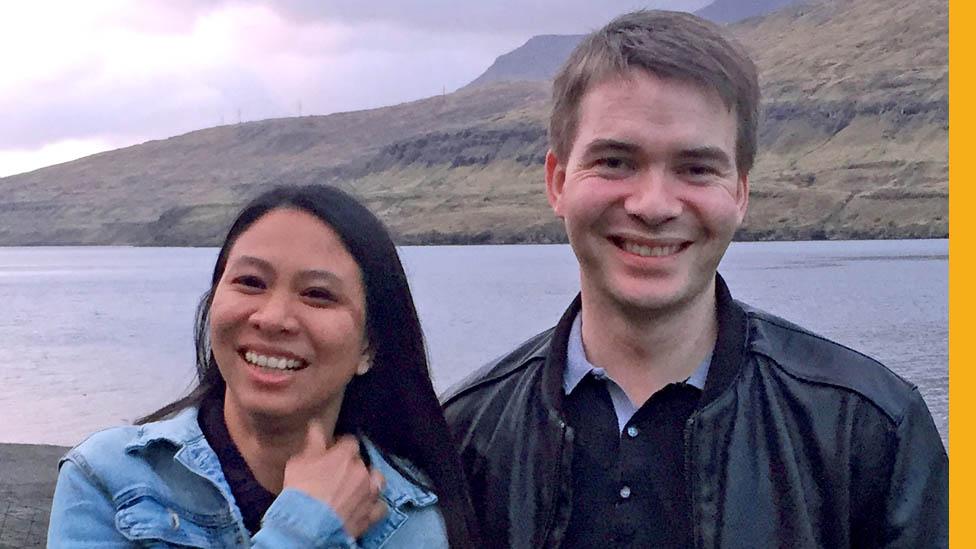Whale hunt in Faroe Islands turns sea red with blood
- Published
Powerful pictures from the Faroe Islands show the sea turned blood red after dozens of whales were killed by islanders in preparation for the harsh winter months.
Warning: This story contains images some may find distressing
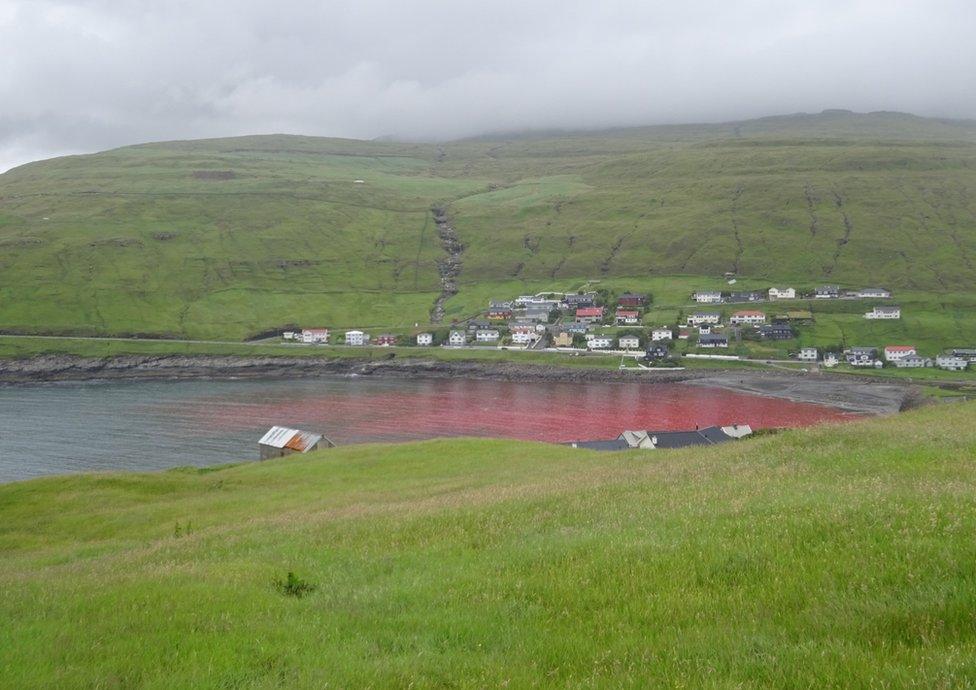
Cambridge University student Alastair Ward, 22, photographed the traditional "whale driving" carried out by the community in the bay in Sandavágu.
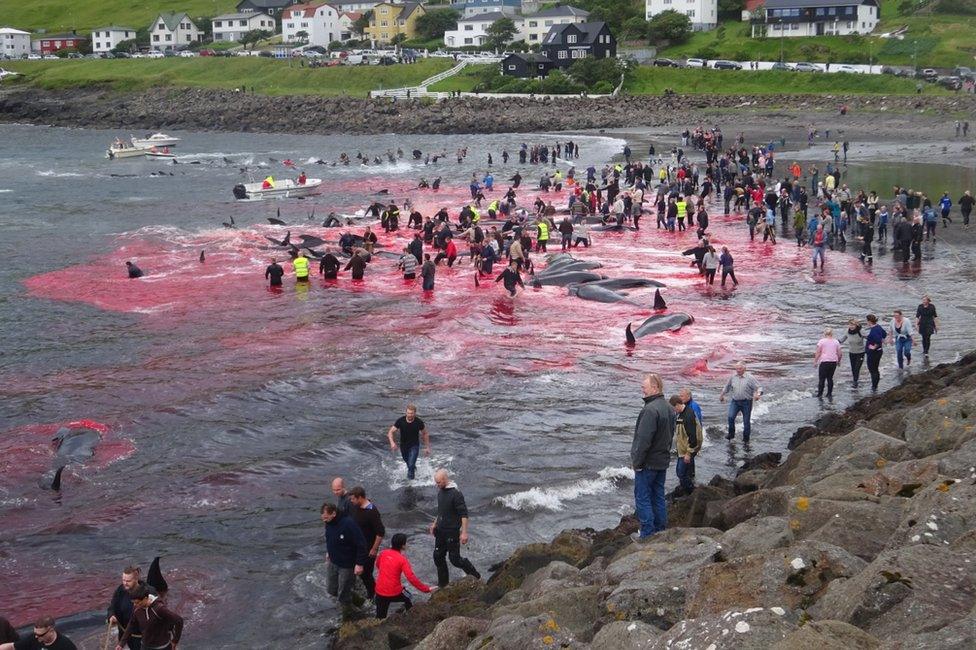
The Faroe Islands are located in the North Atlantic between Norway and Iceland and are made up of 18 tiny islands
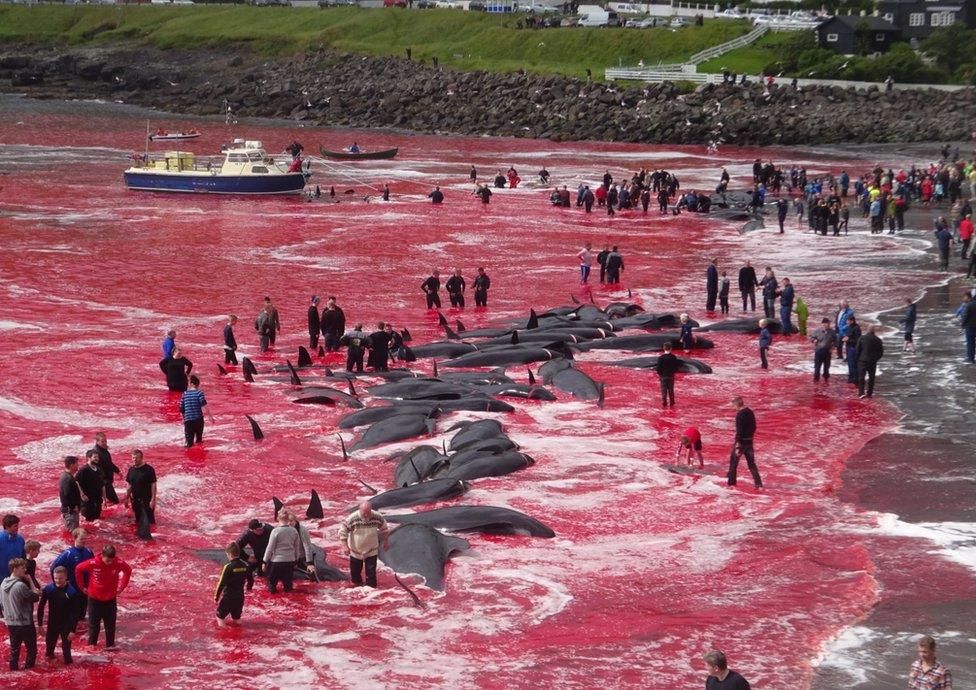
Pilot whale meat and blubber are a food source that will help feed the 50,000 Faroese through winter.
Locals have been carrying out the hunts for centuries, but the gruesome images will likely shock many outsiders.
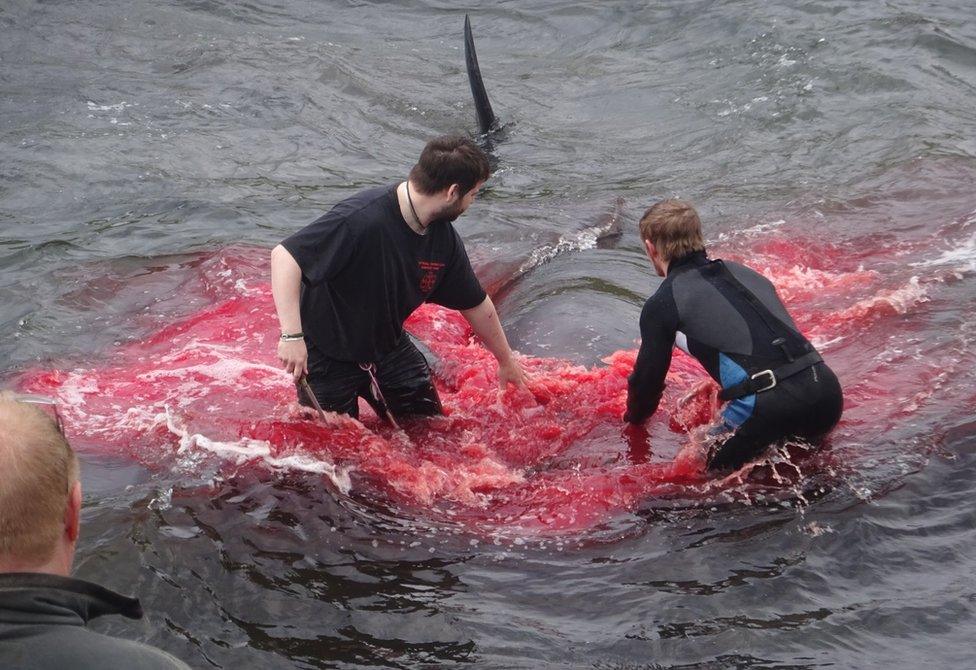
Mr Ward said he had been stunned by the sheer number of whales in the bay.
"They were driving them into the bay, prodding them with their oars.
"Once they got close enough, the whole town sprinted in and started hacking at them," he told the Triangle News agency.
"Even the children were getting involved, pulling on the ropes and jumping on the carcasses.
"We were just sat there speechless and a bit upset but you couldn't really pull yourself away."
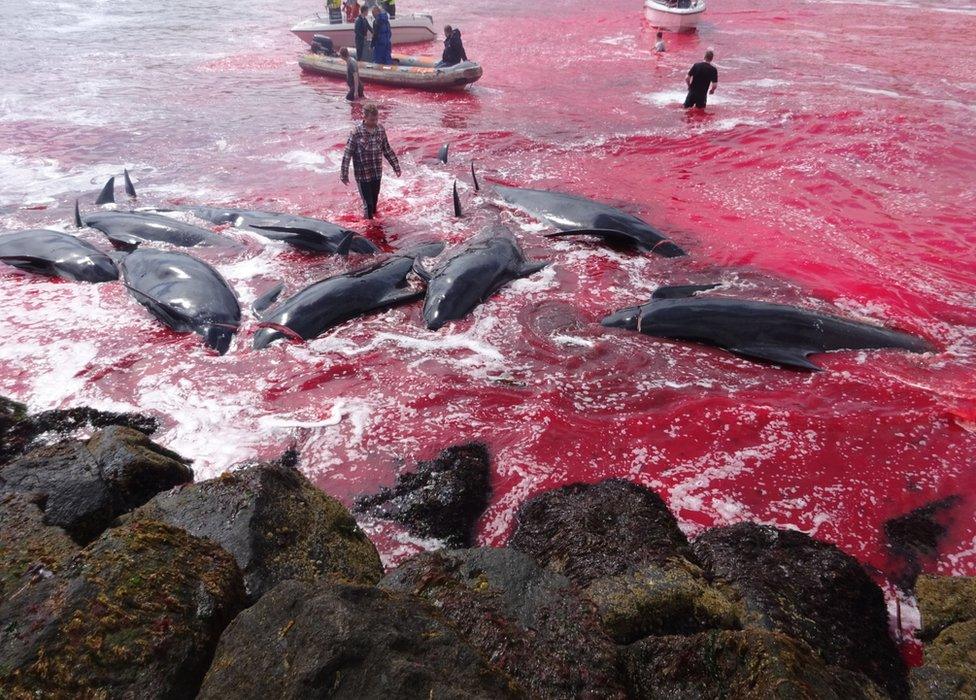
The inhabitants consider whaling a community activity open to everyone, which they say is regulated by national laws and is conducted in a way to cause as little suffering to the whales as possible.
The Faroese say the whaling they carry out is sustainable, catching around 800 pilot whales a year, with around 100,000 whales around the Faroe Islands.
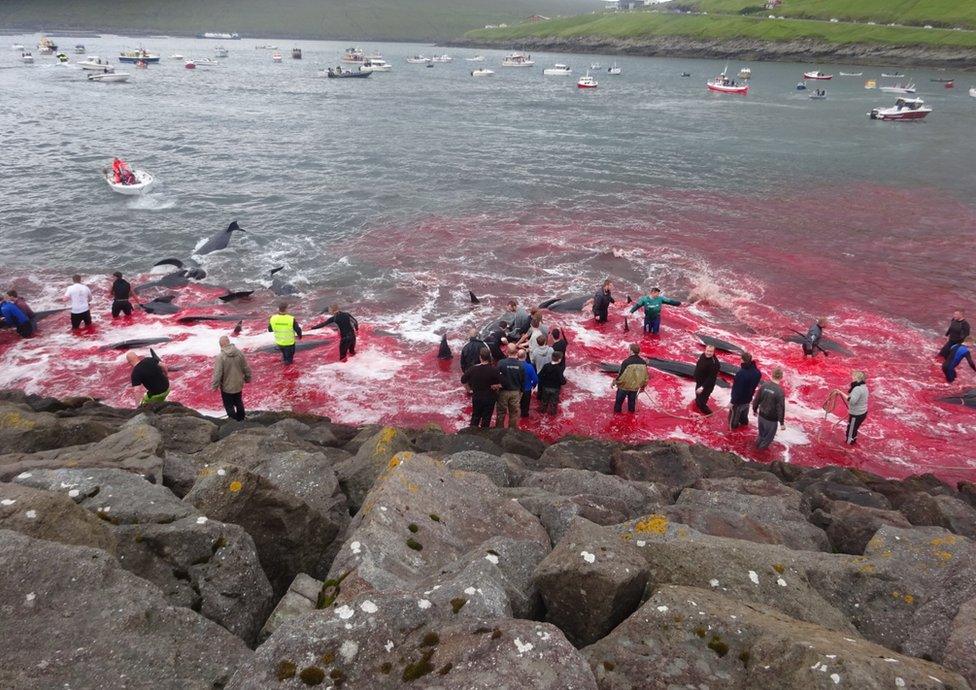
But Mr Ward said he had been concerned over the methods of the whale killings.
"The squealing from the whales was horrible. They were putting hooks on ropes in their blowholes to pull them in and then hacking at them with knives.
"They didn't die in a very humane way."
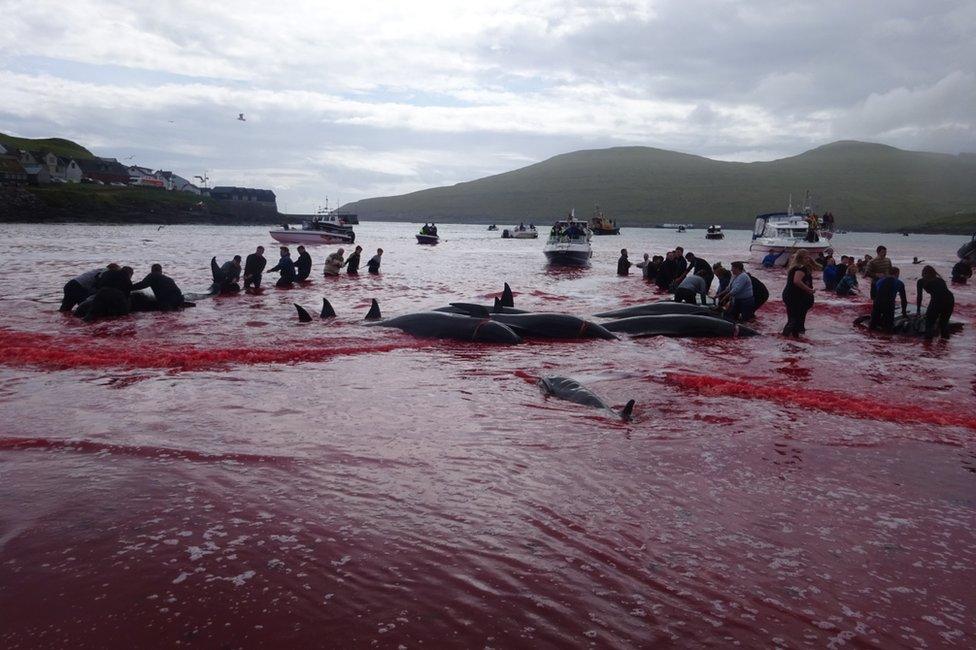
.
- Published25 November 2022
- Published27 April 2017
